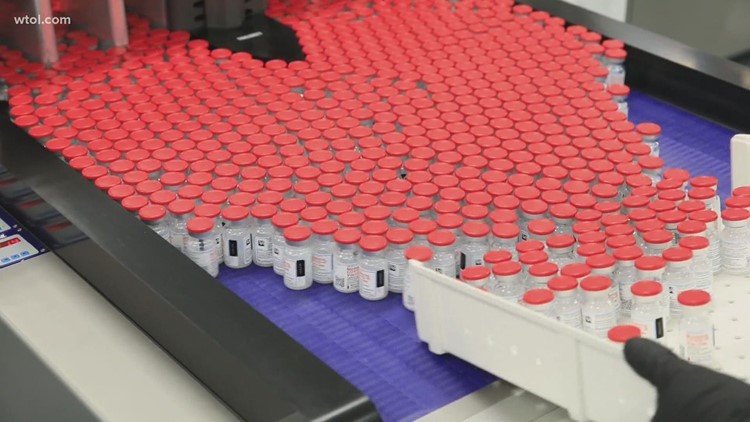TOLEDO, Ohio — Now that both Moderna and Pfizer's vaccines are out, you have been sending us lots of questions on them.
Are the two brands the same? What are the differences between both vaccines?
And, how quickly will these vaccines help us return to normal life?
All of these are valid questions, according to ProMedica Dr. Brian Kaminski, who has been closely following the guidance and research around coronavirus and the vaccine.
The Moderna and Pfizer vaccines are being hailed as our way to herd immunity against the virus. Dr. Kaminski says herd immunity can be achieved either through vaccination or through getting the virus. But we've seen what naturally getting infected looks like in our communities.
"The hundreds of thousands of people that have died, the hospitalizations, the strain on our resources and all that," explained Dr. Kaminski. "So from a healthcare perspective, our preference is definitely to get to herd immunity from the process of vaccination."
Kaminski added around 70% of the population needs to get vaccinated to reach herd immunity.
Experts hope everyone will be able to get a vaccine by the summer.
Of the two available now, are there any differences?
"Both are messenger RNA vaccines and work in exactly the same way in their body," said Dr. Kaminski. "There's just slight differences in how the vaccine is manufactured and how it's stored."
Another viewer asked: do you have to get the same brand vaccine for both doses?
Dr. Kaminski, who has received the Pfizer one, says yes.
"The same goes with Moderna," he said. "We believe that that is the best way to achieve those levels of immunity and effectiveness that we're seeing "
Dr. Kaminski is stressing that even with the vaccines here, it'll take time time for them to do their job and to get to everyone. He's hopes like Thanksgiving, they don't see a surge in cases.
"We're not seeing that worse case scenario, so that's really good," he said. "So just all the more reason we need people to maintain those preventative measures. So it's important now and maybe even more than it has been."



